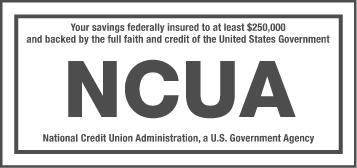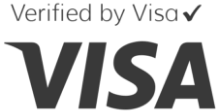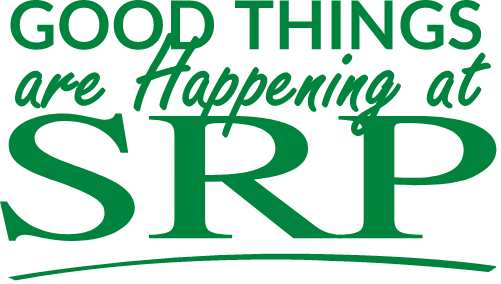When it comes to the security of your financial transactions, most of the focus these days is on online scams and theft—and rightly so. But it’s important not to let down your
guard at a physical location where your money or information could be vulnerable: ATMs.
The good news is that there are techniques you can utilize to help make ATM use safe
and problem-free. You can think of them collectively as The Five-S Plan:
Secure your information
It may seem more convenient to leave your ATM card on your desk at work or in the
glove box of your car, but anytime it’s not with you, it’s that much more susceptible
to falling into the wrong hands.
Security experts recommend never writing down your ATM PIN. Instead, if you’re
having problems remembering your current number, think of one you won’t forget
(like a particular date in your life) and contact your financial institution to make the
change.
It’s easy to panic when you lose your ATM card. But try to remember this calming
fact: your financial institution doesn’t want you to lose money either. So, whenever
you can’t find your card, reach out to them as soon as possible so they can help you
secure any accounts that may have been compromised.
When it comes to keeping your details safe, an excellent question to ask yourself is,
Does this person REALLY need that information? For example, Does this person on
the phone REALLY need my ATM card details? In general, it’s also a good practice to
avoid ever giving out your ATM or credit card information over the phone unless
you’re sure you’re speaking directly to your financial institution.
Remember, at SRP’s many ITM’s (Interactive Teller Machines) in Augusta, Ga., North Augusta and Aiken, SC you have the option to speak with one of SRP’s local tellers at the machine. Rather than choosing the ATM option, you choose the speak to a teller option. They can get other information from you if you have forgotten your PIN and still be able to perform your transaction using the teller. Learn more at www.srpfcu.org.
Select the right ATM
Your best bet is to use an ATM operated by your financial institution at a location
familiar to you. If this isn’t an option, try to choose a machine in a well-lit area not
obscured by trees, bushes, or other objects that could be used by a thief to hide
behind.
Speaking of well-lit areas, nighttime might not be the right time for your ATM
transaction. If possible, try to wait until the sun is up.
It’s wise to scan the area around the ATM when you arrive. If someone lurking nearby
doesn’t seem to have a particular purpose for being there, it might be in your best
interest to find a different ATM.
Safeguard yourself at the machine
Try to make ATM transactions with a family member or friend when possible.
Criminals are less likely to target someone who’s got a partner looking out for them.
If you’re using a drive-up ATM, keep your doors locked, windows rolled up, and the
engine running.
If someone is standing closer than you’d like while you use the ATM, cancel your
transaction, and find another machine to use. They might be trying to spy on your
PIN.
It’s natural to want to count your money after making a withdrawal, but doing so can give a crook an idea of how much money you took out wile providing them extra time to approach you with ill intent.
Take your receipt with you. While that little piece of paper doesn’t have all your
personal information, it does contain bits of data fraudsters can use to steal you identity.
Stay vigilant
After you’ve withdrawn money, survey the area around you again. If someone is
following you, head to the nearest place with people in or around it. As soon as
you’re close to other people, take out your phone and call the police.
It’s a good idea to monitor your online or paper statements for fraudulent
transactions regularly. Contact your financial institution if something doesn’t look
right.
Spot skimming scams
Skimmers are devices criminals attach to ATMs and other card-reading terminals to
harvest sensitive information and fraudulently access accounts. In 2021 alone, there were over 5,500 known instances of skimmers attached to ATMs in the United States. Your best method for fighting this sinister tactic is to stay on the lookout for these crude
electronic overlays. If you see an ATM that matches these descriptions, report it to the
machine’s owner and find another ATM to use.
- Loose plastic casing
- Misaligned pieces
- Sticky residue or tape
- Stiff buttons
- Wobbly keypad
- Cracked or damaged housing
- Oversized card slot
- Oddly colored plastic around the card slot
- Unusual on-screen instructions
While the above tips may make the threat of ATM crime seem scary, none of the
information is meant to alarm you. Ideally, it will help you feel less worried knowing
you’ve taken the necessary precautions to secure yourself and your information.
If you are a member at SRP Federal Credit Union you will find over fifty ATMs or ITMs at your disposal throughout the CSRA for your banking convenience.
This article is for informational purposes only. Membership required. SRP is federally insured by NCUA.
Article Credit: Balance













